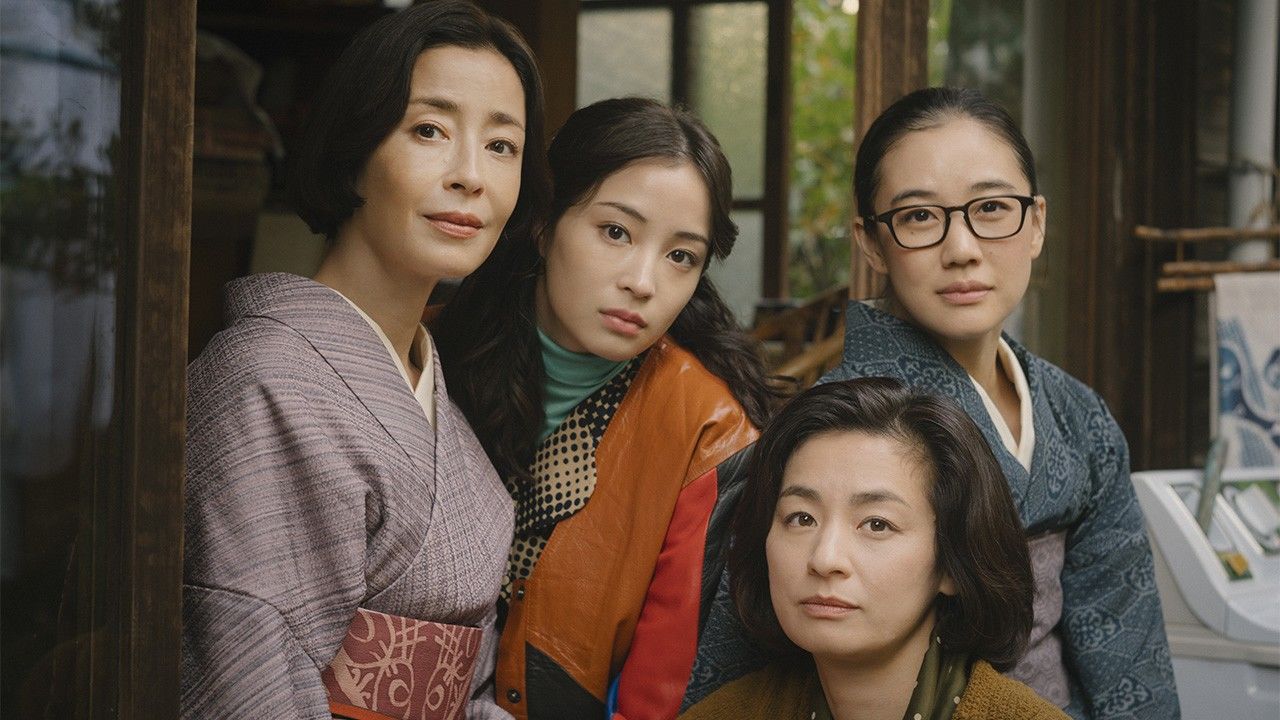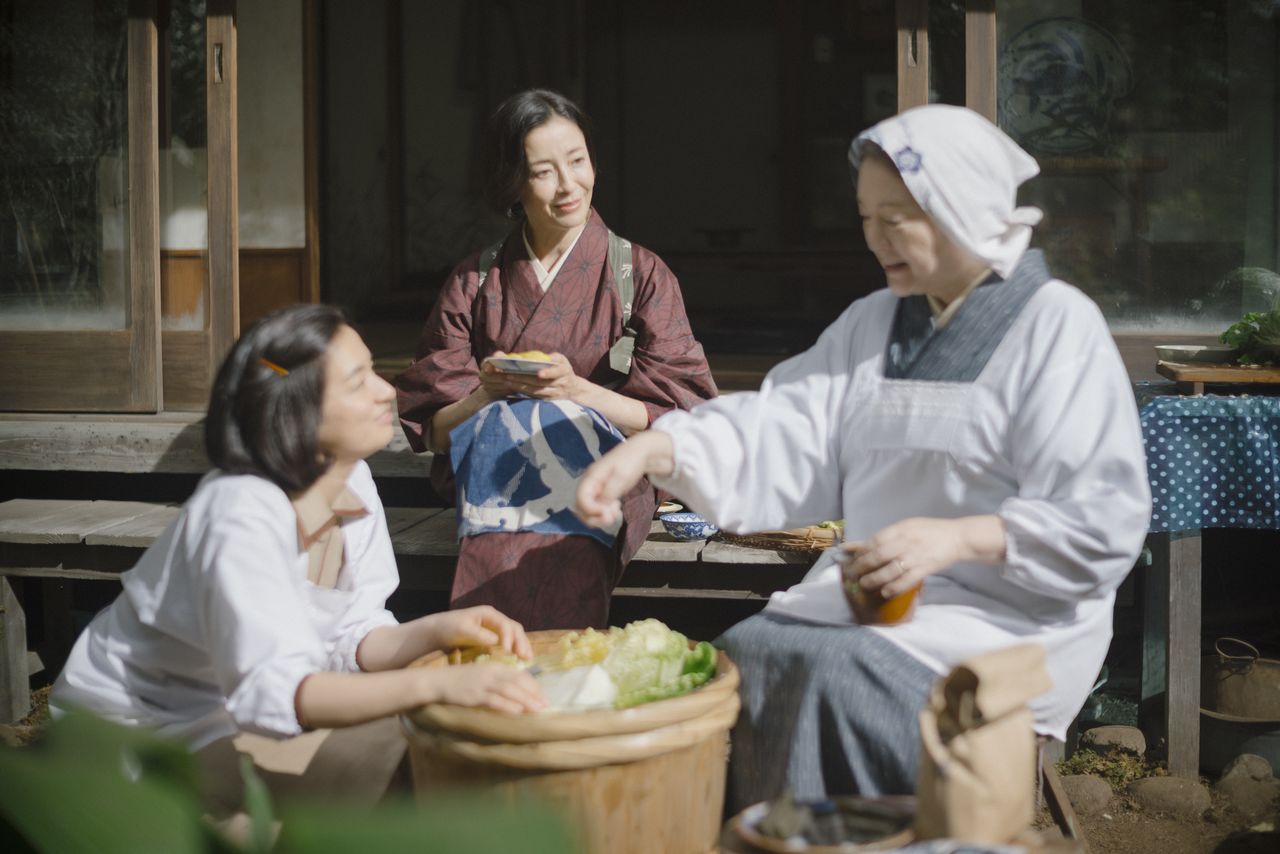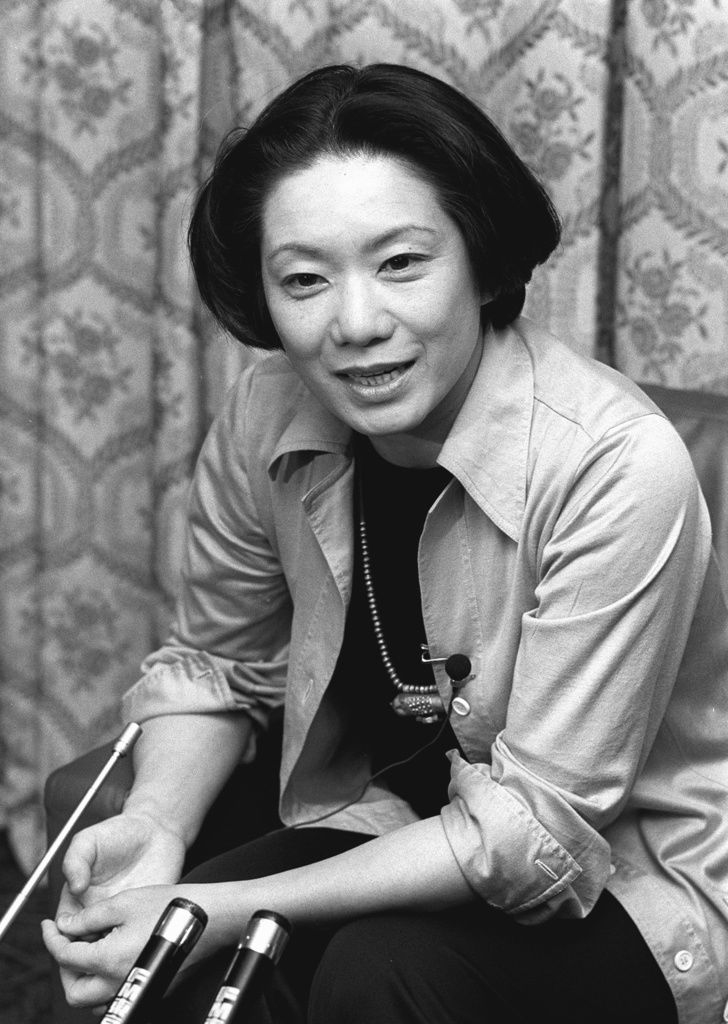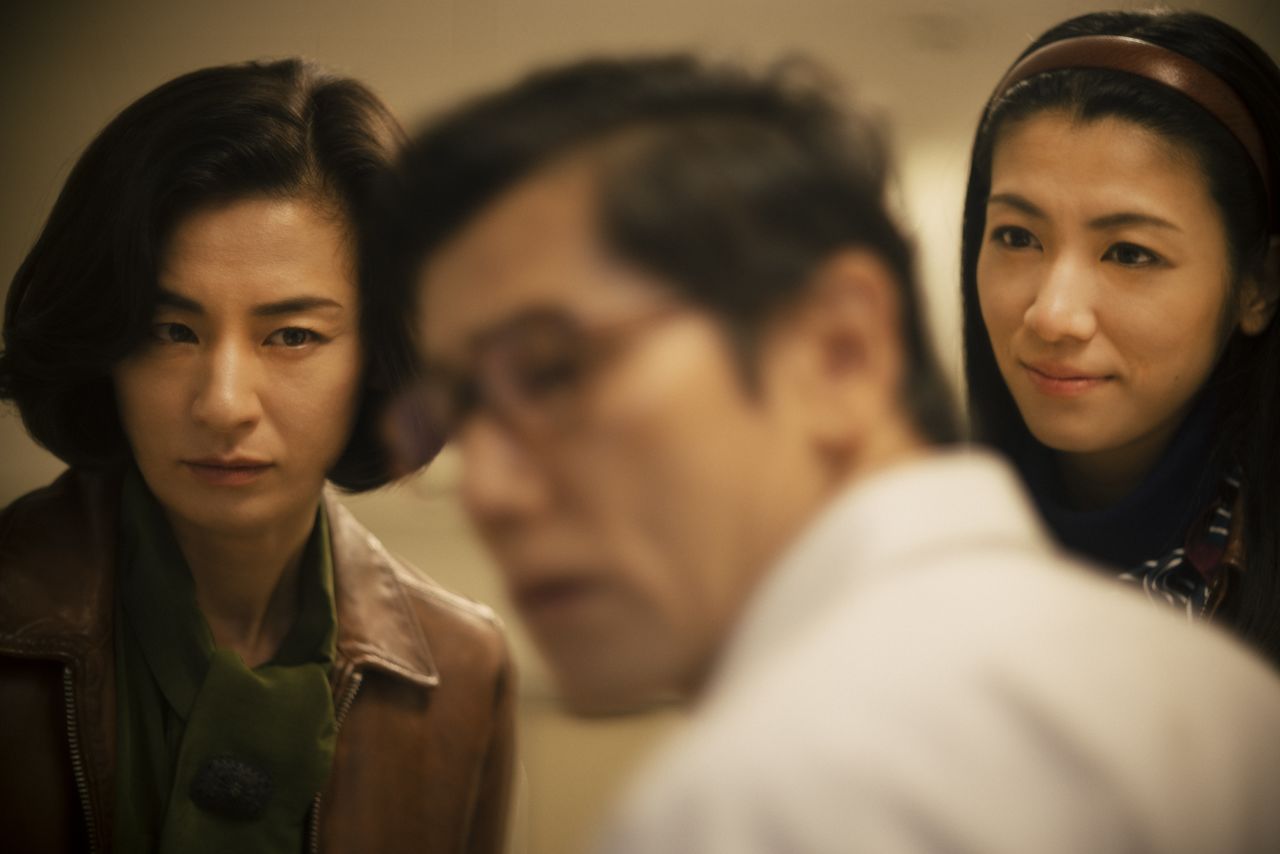
“Asura”: Acclaimed Koreeda Drama Remakes Classic Script by Mukōda Kuniko
Culture Entertainment- English
- 日本語
- 简体字
- 繁體字
- Français
- Español
- العربية
- Русский
Remake of a Classic Series
Koreeda Hirokazu’s seven-episode drama Asura is currently streaming worldwide on Netflix. Set in Tokyo in 1979, it depicts a family reeling from the discovery that the father, Takezawa Kōtarō (played by Kunimura Jun), is having an affair.
Takezawa’s four daughters are shocked at their father’s infidelity and try to handle the situation without telling their mother Fuji (Matsuzaka Keiko), while also grappling with the complexities and problems of their own personal lives.
The oldest sister Tsunako (Miyazawa Rie) is a widow who teaches flower arrangement. Her adult son has left home, and she is herself involved in a long-running affair with a restaurant owner (Uchino Seiyō), who is married with children.
Makiko (Ono Machiko), the second sister, is a housewife married to Takao (Motoki Masahiro) with a son and daughter. Her life is stable, but she suspects her husband of cheating on her.
The third sister, Takiko (Aoi Yū), is single and works in a library. Earnest by nature, she wears plain, black-framed glasses and harbors a complex about her older and more beautiful sisters. While she is curious about love, she lacks the courage to seek it out.
The fourth sister, Sachiko (Hirose Suzu), works in a café. At school, she was precocious but not as academically inclined as her sisters. She lives with an up-and-coming professional boxer.
The sisters mainly move in their own circles, but begin to meet each other regularly to deal with the situation with their father. Simmering emotions and previously unexpressed words rise to the surface.
Families at their core are mysterious. Parents and their offspring develop intimate bonds, but such close-knit relationships must necessarily wane as children grow, and in time, family members may even suddenly appear as strangers.
Koreeda has already produced masterpieces about the Japanese family, such as Like Father, Like Son and Shoplifters. Here, he portrays the extraordinary darkness that hides in the recesses of a family’s apparently ordinary daily life.
Since its release, Asura has received glowing praise in Japan and overseas, but viewers should not forget that this is a remake. The original, which has the same Japanese title Ashura no gotoku as Koreeda’s version, was based on a script by Mukōda Kuniko (1929–81), who wrote many famous works for television. The first three episodes were broadcast by NHK in 1979 and the remaining four in 1980.
Koreeda based his script on Mukōda’s and also directs the drama. There are several differences between the two versions, but overall Koreeda faithfully brings Mukōda’s script to life, demonstrating the tremendous respect he has for her works.

Makiko (left) and Tsunako (center) help their mother Fuji to make pickles. (© Netflix)
A Life in Scriptwriting
Mukōda Kuniko was born in Setagaya, Tokyo, in 1929. She was 7 at the start of the Sino-Japanese war in 1937 and 15 when World War II ended with Japan’s defeat.
After graduating from the forerunner to today’s Jissen Women’s University in 1950, she worked as a secretary for two years, and then for almost nine years as an editor at a film magazine. Television broadcasting began in Japan in 1953, and Mukōda started writing scripts five years later while still working in publishing.
She was a scriptwriter for such TBS series as the 1964 Shichinin no mago (The Seven Grandchildren) and the 1971 Jikan desu yo (It’s Time!). As her star rose, she wrote Terauchi Kantarō ikka (The Terauchi Kantarō Family) in 1974, when she was 44. The story revolved around the Terauchi family led by Kantarō, an iron-fisted patriarch who yelled and overturned tables when things did not go his way. A stubborn old man, Kantarō somehow typified the era.
At the time, mothers were at the center of many popular Japanese family dramas, including Okāsan (Mother), which aired for around a decade from the end of the 1950s, and Arigatō (Thank You) that was broadcast in the early 1970s. In that sense, The Terauchi Kantarō Family was groundbreaking in its focus on the father.

Known primarily as a scriptwriter, Mukōda Kuniko also wrote fiction and essays. In 1983, she won the Naoki Prize for stories including “Kawauso” (translated by Angus Turvill as “The Otter”). Photograph taken in Tokyo on July 17, 1980. (© Kyōdō)
A turning point for Mukōda came in 1975 when she had an operation for breast cancer. Survival rates for the disease were lower than they are today, and through the experience Mukōda began to think about the prospect of dying and also about how she should live.
Starting with her 1977 drama Fuyu no undōkai (Winter Sports Day), which tells of a teenage boy trying to find the home he yearns for with a couple who run a shoe shop, the tensions underlying Mukōda ’s works discernibly sharpened. She began probing more deeply the dark corners of the family than had previously been seen in dramas with home settings, producing stirring programs with realistic dialogue. From this point on, she resolved to write what she wanted to write, and did so for the remainder of her life.
In 1979 she penned Ashura no gotoku. One of her finest works, it frankly portrays human relationships through four sisters with different personalities and lives, as well as their parents, husbands, and lovers.
Tragically, Mukōda died in a plane crash while doing research in Taiwan shortly after the drama aired.
Adaptation and Updating
Koreeda follows Mukōda’s script exactly in key scenes. In the first episode, for instance, the mother Fuji peacefully sings a children’s song as she brushes her husband’s coat. ”Snail, snail, come out from your shell,” she murmurs as a toy car falls out of one of the coat’s pockets.
Her husband, believing his wife to be unaware of his infidelity, has bought the car as a present for his lover’s child. Fuji holds the toy in her hand, silently looking at it for several moments before continuing her song. “Where, oh where does your head hide?” she sings as she moves the car back and forth on the tatami.
Suddenly, she hurls the car at the sliding door with all her strength, her peaceful expression now one of barely concealed rage. “Reveal your horns, reveal your spears, reveal your head,” she continues to sing. The tension is cut only by the ringing of the telephone, which Fuji answers in her normal reserved tone. “Hello? Takezawa residence. . . Oh, Sakiko! How are you, dear?”
The scene, terrifying to watch, is Mukōda at her best.
At other times, though, Koreeda instigates bold changes. In one instance, he moves lines Makiko’s husband Takao originally spoke at the end of the third episode providing the title of the work to almost the end of the series. In the scene, the character Katsumata (Matsuda Ryūhei) says to Takao as the pair watch the sisters talk together, “I can’t tell if those four get along or not.” To which Takao replies, “They’re Asura, aren’t they? Women are like Asura. . . Asura are Indian deities. On the outside, they embody all that is virtuous. But they’re scornful too.”
The four laughing sisters turn to look at him, with the question, “Did you say something?”

When Takao (center) feels unwell during his health check, Makiko (left) rushes to the hospital out of concern, where she bumps into his secretary, who she suspects he is having an affair with. (© Netflix)
Koreeda replaces Takao’s words at the end of the third episode with the finishing lines of Natsume Sōseki’s novel Gubijinsō (The Poppy), which appear on the screen.
Tragedy is greater than comedy.
Millet or rice? Such is comedy.
That woman or this woman? Such too is comedy.
English or German? Such too is comedy.
All is comedy.
In the end, one question remains.
Life or death.
Such is tragedy.
It is an excellent accompaniment to this drama that is both a tragedy and a comedy.
In addition to these kinds of structural changes, Koreeda carefully alters the story to bring it in line with contemporary attitudes. In the original, the female characters show some restraint toward the men, reflecting the values of the day. Koreeda’s fine-tuning, however, brings out their superb self-assertiveness.
Despite being set almost half a century ago, the story, a wonderful creation by both Koreeda and Mukōda, is brimming with universal truths about family and the relations between men and women.
(Originally published in Japanese on February 13, 2025. Banner photo: Main Asura cast members (from left): Miyazawa Rie, Hirose Suzu, Ono Machiko, Aoi Yū. © Netflix.)
